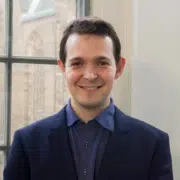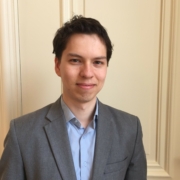Russia is back. After two decades of – checkered – attempts at rapprochement between the West and Russia, the Russian leadership has opted for a more confrontational and assertive foreign and security policy. All along Europe’s periphery, Russia is once again a factor to be reckoned with, even for the Netherlands (trade, cyber, Art 5, political influence, etc.).
During the last period of systemic confrontation Western decision-makers on both sides of the Atlantic could fall back on a definitely imperfect, but still comprehensive and solid epistemic backbone of broad and deep knowledge on the country. After the end of the Cold war that epistemic backbone quickly atrophied. Most western countries today recognize that the backbone has to be rebuilt and possibly even rethought and retooled.
Confronted with this new challenge HCSS decided to embark on a dual-track strategy:
- We continue to use ‘tried and tested’ as well as emerging research techniques to produce evidence-based and creative analysis of what is going on in Russia and what that means for the West/Europe/The Netherlands;
- At the same time, we also reached out to secure funding to explore to what extent certain tools and techniques (natural language processing/understanding; machine learning, etc.) that are showing such unprecedented promise in fields like life sciences might also be used to shed light on Russia’s international thinking and acting.
Why RuBase?
RuBase is a multi-year research project that sets out to improve our understanding of Russia’s multi-domain international behavior. The ‘base’ in RuBase refers both to the knowledge base the team is building and to its (aspirationally) foundational nature.
To elicit deeper knowledge and understanding about this topic a variety of new methods are introduced including open-source text- and data-sets and -mining tools explored through both human analysis and (supervised and unsupervised) machine-learning algorithms. This should generate a new visual and interactive knowledge base on Russia.
The RuBase will serve as a platform for Russian experts in the field to explore new collaborative ways of cumulative knowledge building on this topic that is only gaining in policy relevance.
What is RuBase?
This multi-year project sets out to explore new text- and number-based datasets, -tools and methods, using a corpus systematically compiled through relevant search queries, combined with different additional data sets like elite opinion surveys, event data sets (GDELT, ICEWS, Phoenix, TERRIER), economic, demographic, military, political, etc. datasets, to improve our knowledge about Russia’s multi-domain coercion/international behavior more broadly. It will yield a new knowledge base on Russia (RuBase) that will be highly visual and interactive.
- RuBase will be a knowledge base on Russia’s international coercion/behavior
- The exploratory project uses a variety of new open-source text- and data-sets and -mining tools to elicit deeper knowledge and understanding about this topic
- One of the main aims of this project is to expose Russian experts in this field to these new datasets and -tools and to examine to what extent they can enrich our understanding of this topic – also in new collaborative ways
- The project is spearheaded by Georgia-Tech and HCSS and funded by CCNY
Featured Publications:
- Artificial Intelligence and the Future of Defense: Strategic Implications for a Small Force Provider (2017)
- From Assertiveness to Aggression: 2014 as a Watershed Year for Russian Foreign and Security Policy (2015)
The RuBase team
Principal investigators:
- Adam Stulberg, co-PI, Associate Chair/Research and Neal Family Chair Professor, Sam Nunn School of International Affairs, Georgia Tech
- Stephan De Spiegeleire, co-PI, HCSS Principal Scientist, HCSS
Co-investigators:
- Tim Sweijs, Research director, HCSS
- Jonathan Darsey, Georgia Tech, Nunn School of International Affairs
- Khrystyna Holynska, HCSS Team Ukraine
- Yevhen Sapolovych, HCSS Team Ukraine
Assistants:
- Alex (William) Emken, Undergraduate Research Assistant (INTA / Russian Language dual major), Georgia Tech.
- Samuel Rising, Graduate Research Assistant (INTA), Georgia Tech
- Brendan Vaisuil
- Daria Goriacheva, Yar Batoh and Anastasiia Shchepina (HCSS Team Ukraine)
- Mikhail Akimov (Moscow)
- Paul Verhagen and Hugo van Manen (HCSS)
- Chris McDermott, Research Associate I, CISTP – Nunn School
- Textmining team – led by Olga Scrivner, Indiana University, Bloomington, USA
Video:
Stephan de Spiegeleire speaks on his research of the key elements involved in Russian coercive efforts in Ukraine using datasets and tools from the ongoing RuBase research project.
Khrystyna Holynska speaks on her research of the key elements involved in Russian coercive efforts in Ukraine using datasets and tools from the ongoing RuBase research project.
—-






